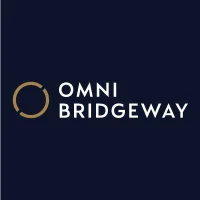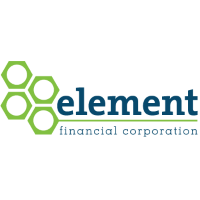
Omni Bridgeway Ltd
ASX:OBL

Profitability Summary
Omni Bridgeway Ltd's profitability score is hidden . We take all the information about a company's profitability (such as its margins, capital efficiency, free cash flow generating ability, and more) and consolidate it into one single number - the profitability score. The higher the profitability score, the more profitable the company is.
Profitability Score
We take all the information about a company's profitability (such as its margins, capital efficiency, free cash flow generating ability, and more) and consolidate it into one single number - the profitability score. The higher the profitability score, the more profitable the company is.
We take all the information about a company's profitability (such as its margins, capital efficiency, free cash flow generating ability, and more) and consolidate it into one single number - the profitability score. The higher the profitability score, the more profitable the company is.
Profitability Score
Margins
Earnings Waterfall
Omni Bridgeway Ltd

Margins Comparison
Omni Bridgeway Ltd Competitors

| Country | Company | Market Cap |
Operating Margin |
Net Margin |
||
|---|---|---|---|---|---|---|
| AU |

|
Omni Bridgeway Ltd
ASX:OBL
|
455.7m AUD |
Loading...
|
Loading...
|
|
| IN |
S
|
SPS Finquest Ltd
BSE:538402
|
2.6T INR |
Loading...
|
Loading...
|
|
| IN |

|
Indian Railway Finance Corp Ltd
NSE:IRFC
|
1.5T INR |
Loading...
|
Loading...
|
|
| IN |

|
Power Finance Corporation Ltd
NSE:PFC
|
1.4T INR |
Loading...
|
Loading...
|
|
| JP |

|
Mitsubishi HC Capital Inc
TSE:8593
|
2.1T JPY |
Loading...
|
Loading...
|
|
| JP |

|
Shinkin Central Bank
TSE:8421
|
1.7T JPY |
Loading...
|
Loading...
|
|
| CA |

|
Element Fleet Management Corp
TSX:EFN
|
14.5B CAD |
Loading...
|
Loading...
|
|
| IN |

|
REC Limited
NSE:RECLTD
|
922.9B INR |
Loading...
|
Loading...
|
|
| JP |

|
Tokyo Century Corp
TSE:8439
|
1.1T JPY |
Loading...
|
Loading...
|
|
| TR |
D
|
Destek Finans Faktoring AS
IST:DSTKF.E
|
299.5B TRY |
Loading...
|
Loading...
|
|
| TW |

|
Chailease Holding Company Ltd
TWSE:5871
|
183.1B TWD |
Loading...
|
Loading...
|
Return on Capital
Return on Capital Comparison
Omni Bridgeway Ltd Competitors

| Country | Company | Market Cap | ROE | ROA | ROCE | ROIC | ||
|---|---|---|---|---|---|---|---|---|
| AU |

|
Omni Bridgeway Ltd
ASX:OBL
|
455.7m AUD |
Loading...
|
Loading...
|
Loading...
|
Loading...
|
|
| IN |
S
|
SPS Finquest Ltd
BSE:538402
|
2.6T INR |
Loading...
|
Loading...
|
Loading...
|
Loading...
|
|
| IN |

|
Indian Railway Finance Corp Ltd
NSE:IRFC
|
1.5T INR |
Loading...
|
Loading...
|
Loading...
|
Loading...
|
|
| IN |

|
Power Finance Corporation Ltd
NSE:PFC
|
1.4T INR |
Loading...
|
Loading...
|
Loading...
|
Loading...
|
|
| JP |

|
Mitsubishi HC Capital Inc
TSE:8593
|
2.1T JPY |
Loading...
|
Loading...
|
Loading...
|
Loading...
|
|
| JP |

|
Shinkin Central Bank
TSE:8421
|
1.7T JPY |
Loading...
|
Loading...
|
Loading...
|
Loading...
|
|
| CA |

|
Element Fleet Management Corp
TSX:EFN
|
14.5B CAD |
Loading...
|
Loading...
|
Loading...
|
Loading...
|
|
| IN |

|
REC Limited
NSE:RECLTD
|
922.9B INR |
Loading...
|
Loading...
|
Loading...
|
Loading...
|
|
| JP |

|
Tokyo Century Corp
TSE:8439
|
1.1T JPY |
Loading...
|
Loading...
|
Loading...
|
Loading...
|
|
| TR |
D
|
Destek Finans Faktoring AS
IST:DSTKF.E
|
299.5B TRY |
Loading...
|
Loading...
|
Loading...
|
Loading...
|
|
| TW |

|
Chailease Holding Company Ltd
TWSE:5871
|
183.1B TWD |
Loading...
|
Loading...
|
Loading...
|
Loading...
|

